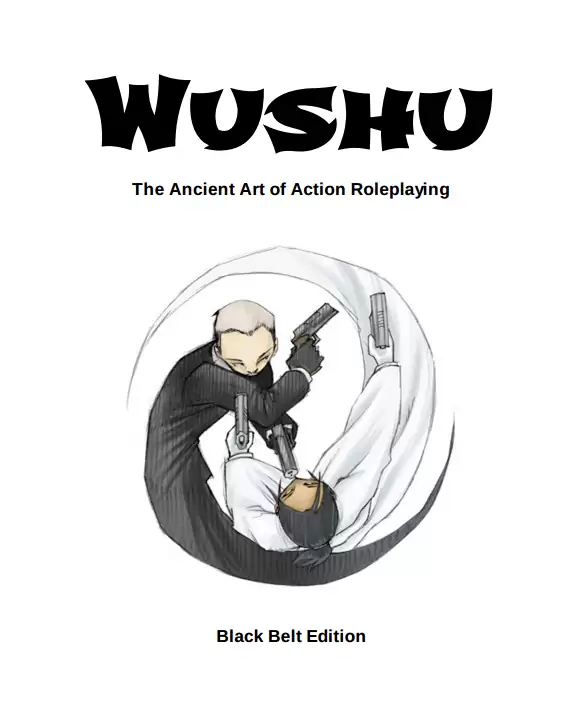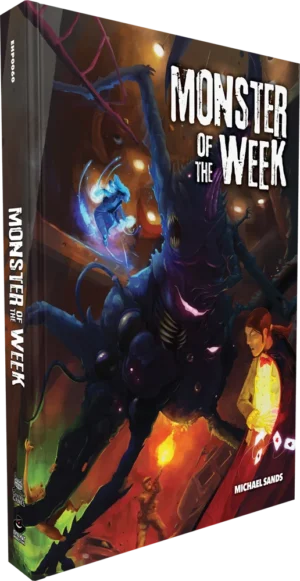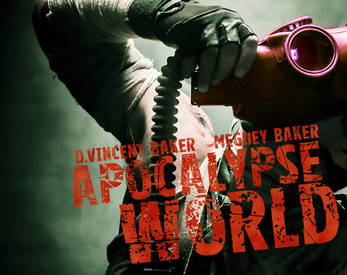Wushu Fantasy; Non-Western / Culturally Diverse; Dark; Narrative-Driven; Innovative Mechanics; Collaborative Worldbuilding; Quick-Play / One-Shot
Wushu is a narrative-driven tabletop roleplaying game emphasizing cinematic action and collaborative storytelling. Its core mechanic rewards players for descriptive and creative action declarations, building dice pools based on the embellishments added to their actions. This analysis explores Wushu's themes, mechanics, unique qualities, and target audience, highlighting its suitability for quick-play sessions and its focus on collaborative worldbuilding and stylized action.
Theme and Setting
Wushu is designed to emulate the over-the-top action found in Hong Kong action films, superhero movies, and wuxia epics like Crouching Tiger, Hidden Dragon or Kung-Fu Hustle. The game encourages players to embrace stylized combat and dramatic scenarios, prioritizing entertainment over strict realism. While not explicitly tied to any single setting, it lends itself well to settings that allow for high-flying action, such as fantasy worlds inspired by Chinese mythology, cyberpunk environments, or even modern-day settings with a fantastical twist. Sample settings include Clockwork Wuxia, Purgatory, and Celestial, showcasing diverse applications from kung-fu scientists to virtual reality prisons and far-future kung-fu sci-fi. The game's adaptability allows for diverse themes, making it suitable for non-Western, culturally diverse, and even dark narratives.
Core Mechanics and Rules
At its heart, Wushu uses a simple yet innovative mechanic: players build dice pools based on the descriptive embellishments they add to their character's actions. Characters possess traits rated from 1 to 5, representing their strengths, which serve as target numbers for dice rolls. For each detail or flourish added to an action description, the player gains an additional die to roll. Success is determined by the number of dice that roll equal to or below the relevant trait. For example, a simple kick grants one die, but a kick to the throat with an audible snap grants three dice. More complex systems involving Chi (health and luck), and combat pools split into Ying and Yang (attack and defense) provide increased depth. There are also rules for mooks and Nemeses, all designed to facilitate fast-paced, cinematic action. Character creation is intentionally simple, focusing on defining a few key traits and a weakness, encouraging players to quickly jump into the action.
What Makes It Unique
Wushu distinguishes itself through its emphasis on narrative control and player creativity. The more descriptive and imaginative a player is, the better their chances of success. This encourages active participation and collaborative storytelling. The 'scab roll' mechanic allows for quick resolution when detailed descriptions aren't desired, maintaining the game's pace. Unlike many traditional RPGs, Wushu is less concerned with tactical precision and more focused on creating memorable and entertaining scenes. The game promotes a 'scene resolution' approach where player actions contribute to the overall outcome of a scene rather than individual actions, fostering a dynamic and unpredictable play environment. The flashback mechanic adds a layer of depth, enabling players to weave character history seamlessly into the ongoing narrative.
Target Audience and Player Experience
Wushu is geared towards players who enjoy collaborative storytelling, improvisational roleplaying, and over-the-top action. It is particularly well-suited for one-shot adventures or short campaigns due to its quick character creation and rules-light system. Experienced roleplayers comfortable with 'make it up on your own' mechanics will adapt quickly. It is also a suitable entry point for non-gamers interested in creative and imaginative gameplay. However, the game's open-ended nature may present challenges for players accustomed to highly structured rules or those who prefer tactical combat. The ideal player experience involves active participation in crafting the narrative, embracing the freedom to perform outrageous stunts, and working collaboratively with the other players and the Director to create a memorable and entertaining story. The emphasis on style and description creates a player experience that is more like co-directing a movie scene than meticulously following a rulebook.



